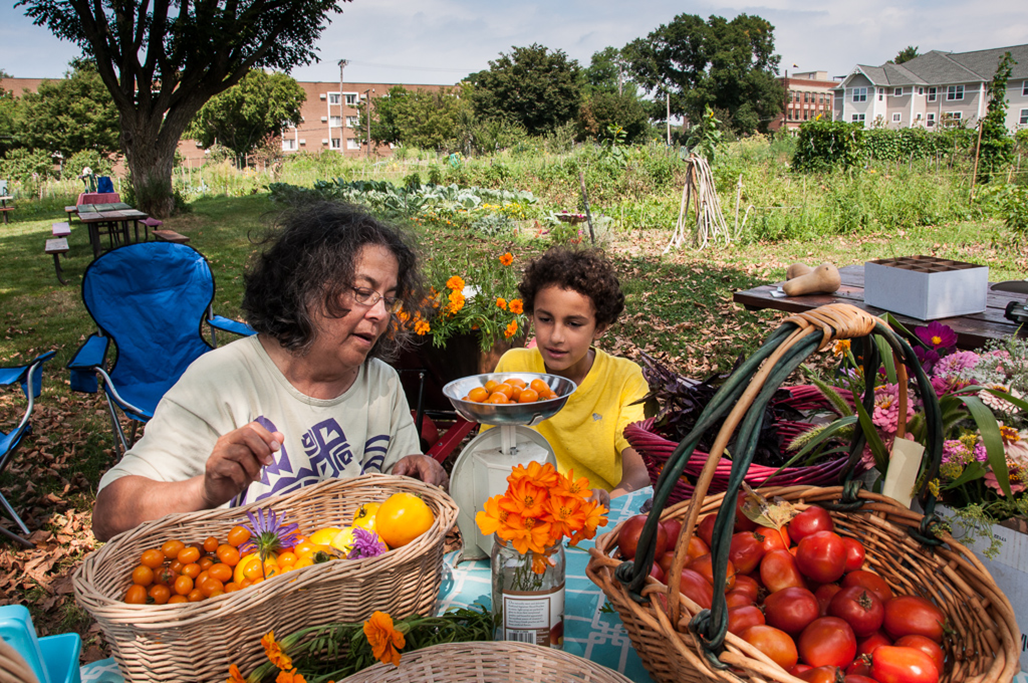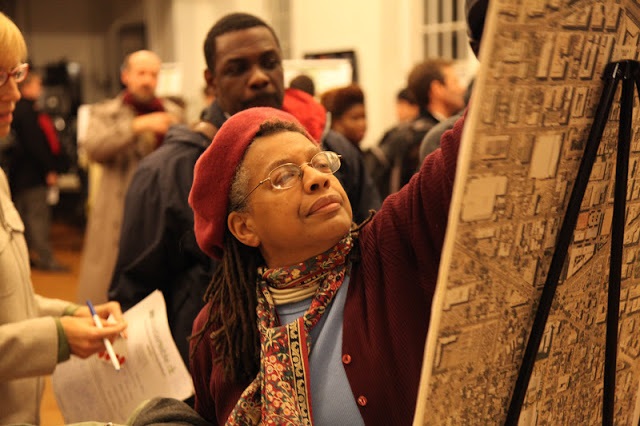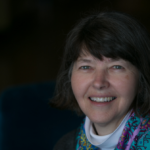Sustainability Efforts in 15 Cities Get $1.7 Million in New Funding
We are proud to announce that 15 cities across the United States will receive more than $1.7 million for sustainability efforts through the Partners for Places matching grants program — projects as diverse as supporting urban agriculture and reforestation, providing green jobs for low-income workers, and ensuring all residents benefit from their community’s environmental progress.
“Climate issues are people issues,” said Darryl Young, director of Sustainable Cities at The Summit Foundation and a TFN board member. “At the city scale, there’s meaningful work to be done jointly in the public and private sectors. These Partners for Places proposals are where people are rolling up their sleeves and building strong, sustainable towns that strengthen communities and improve lives.”
These sustainability efforts will take place in cities large and small, from South Florida to the Pacific Northwest Florida, focusing mostly on low-income areas. They include: Columbia, Mo., where an under-used 10-acre site in a low-income neighborhood will be turned into an urban farm and agriculture park; Newark, N.J., where efforts to promote healthier, more energy-efficient homes includes a pilot program targeting 6-year-olds exposed to lead; and Boulder, Colo., which will work with Latino-owned landscaping businesses to convert to eco-friendly equipment and develop workforce training programs in renewable energy and efficiency careers.
Partners for Places, led by TFN and our partners at the Urban Sustainability Directors Network, is a collaborative matching grant program that connects local government and philanthropy to invest in sustainability projects that promote a healthy environment, a strong economy and well-being for all residents.
In this most recent round of funding, Partners for Places will provide $455,000 to eight cities through our general grant program, which will be matched by the local funders. We want to thank our six investor foundations for their support of this important program: Bloomberg Philanthropies, The JPB Foundation, The Kendeda Fund, The New York Community Trust, The Summit Foundation, and Surdna Foundation.
“We know that public, private and philanthropic partnerships are key to helping the city to have the walkability, sustainability and safety necessary for vibrant neighborhoods,” said Lincoln Community Foundation President Barbara Bartle, whose foundation has committed to matching a $75,000 Partners for Places grant to implement the Nebraska city’s sustainability efforts, such as installing energy-efficient street lighting, creating bike lanes, and expanding community gardens.
Seven additional cities will receive $405,000 in funding from the pilot Partners for Places Equity Pilot Initiative, created to provide financial and technical support to a cohort of cities and their place-based foundation partners. This pilot, part of TFN’s ongoing commitment to equity and inclusion, is a way to help local efforts use an equity lens to advance sustainability and climate action. These grantees are also learning together, and sharing their insights with each other to advance their work. This two-year pilot program is supported by the generosity of The Kendeda Fund and the Kresge Foundation.
“Low-income communities and people of color are disproportionately harmed by environmental hazards and the effects of climate change,” said Diane Ives, fund advisor for The Kendeda Fund’s People, Place and Planet program. “We need to put equity at the heart of community-based sustainability efforts to ensure that everyone has a chance to live in a vibrant, healthy, resilient community regardless of their zip code.”
To date, Partners for Places has awarded more than $5 million across North America in this successful matching grant program, leading to more than $10 million in investments.

• Boulder, Colo. ($50,000): To build stronger and deeper representation of underserved communities in climate and energy decisions by facilitating dialogues with diverse stakeholders on community-defined priorities; piloting a renewable energy and energy efficiency workforce development program; supporting regional coordination on climate and equity, and generating metrics to guide data collection and evaluate progress. (Matching funder: Philanthropiece Foundation)
• Broward County, Fla. ($25,000): To support a sustainability education and youth leadership afterschool program in a distressed portion of the county that will teach high school students STEM skills, empowering them to become climate sustainability stewards and advocates to address their own neighborhood’s environmental challenges. (Matching funder: Community Foundation of Broward)
• Chicago, Ill. ($75,000): To better connect low- and moderate-income residents more easily to all of the “green” programs offered by the city, such as recycling, transportation, and energy efficiency, ensuring they can take advantage of the many tools and resources available to make their lifestyles more sustainable and help their household budgets go farther. (Matching funder: Chicago Community Trust)
• Columbia, Mo. ($100,000): To turn an under-used, 10-acre site in a low-income neighborhood into a multi-use agricultural park that will feature a farmers market, urban farm, outdoor classroom and green space. (Matching funder: Boone County Community Trust)
• Lincoln, Neb. ($75,000): To implement sustainability elements of a multi-year neighborhood planning process in a low-income neighborhood, such as improving walkability and pedestrian safety and providing green infrastructure, landscaping and urban reforestation, as well as increasing the size, number and potential of community gardens. (Matching funder: Lincoln Community Foundation)
• Newark, N.J. ($60,000): To develop and implement scalable strategies for promoting healthier, more energy-efficient homes in two target neighborhoods through a pilot program, targeting children under 6 years old exposed to lead. (Matching funders: Victoria Foundation; Greater Newark LISC; United Way of Essex and Hudson Counties; Essex Equities; PSEG Foundation)
• Syracuse, N.Y. ($25,000): To design and implement a comprehensive and inclusive outreach campaign that creates a unified vision for protecting and growing Syracuse’s urban forest. (Matching funder: The Gifford Foundation)
• Tacoma, Wash. ($45,000): To create an equitable and healthy food system that promotes healthy communities and people, supporting community members’ research and giving them the tools and resources to implement resilient food system ideas and projects. (Matching funder: The Russell Family Foundation)

• Berkeley, Calif. ($30,000): To develop a “racial equity lens” tool that will include a set of questions that guide city policies and programs. The tool would be first used to incorporate racial equity into a community land-use planning process, and ultimately be applied to a broad range of programs and services. (Matching funders: The San Francisco Foundation; The East Bay Community Foundation)
• Charlotte, N.C. ($75,000): To create an accessible “smart city” platform where residents and government can kick-start collaboration on meaningful projects in categories that include healthy communities, neighborhood transportation, technology training programs, and smart homes and neighborhoods. (Matching funder: Knight Foundation; OrthoCarolina Foundation)
• Cleveland, Ohio ($60,000): To help improve outcomes in health, access to green jobs, and resiliency through equitable climate action planning and implementation, including workshops in 10 neighborhoods previously under-represented in sustainability efforts. (Matching funder: George Gund Foundation; Cleveland Foundation)
• Dubuque, Iowa ($50,000): To ensure city departments and partners learn strategies and have the tools needed to put climate-vulnerable communities at the center of decision-making and planning. The project will engage partners throughout the Washington Neighborhood to build non-profit capacity and social resiliency. (Matching funder: Community Foundation of Greater Dubuque)
• Minneapolis, Minn. ($75,000): To work with community members and organizations to implement a Green Zone pilot project that will address racial equity, improve health, and support economic development using environmentally conscious efforts in a community that faces the cumulative effects of environmental pollution and social, political and economic vulnerability. (Matching funder: McKnight Foundation)
• Providence, R.I. ($55,000): To incorporate racial equity as a core pillar of the city’s sustainability efforts, including additional training and tools that will support long-term goals specific to environmental and racial justice. (Matching funder: Rhode Island Foundation)
• Washington, D.C. ($60,000): To establish an equity advisory group of community residents from the Watts Branch neighborhood in order to bring equity and social cohesion into planning and implementation of the District’s climate adaptation and mitigation initiatives through a community-driven process. The project will produce a replicable model for authentic community engagement to be used in future planning efforts. (Matching funders: The Prince Charitable Trusts; Morris and Gwendolyn Cafritz Foundation)
Partners for Places will open a new round of funding for the general grant program during the first week of June, with proposals due in late July 2017. To attract additional interest in urban sustainability projects, the program also houses an Idea Bank on the Funders’ Network website, which provides summaries of past project applications.
For more information on Partners for Places, visit the Funders’ Network website at https://www.www.fundersnetwork.org/partnersforplaces/
Top photo: Lincon, Neb., received funding through Partners for Places to help sustainability efforts, such as improving walkability and pedestrian safety. [Photo Credit: Lincoln Community Foundation.]
 About the author: Ann Fowler Wallace is director of programs for the Funders’ Network.
About the author: Ann Fowler Wallace is director of programs for the Funders’ Network.
